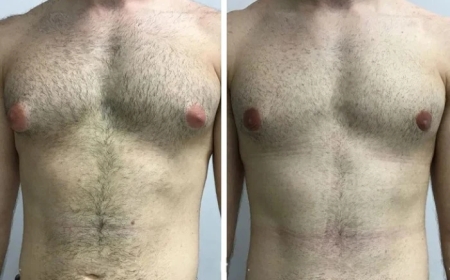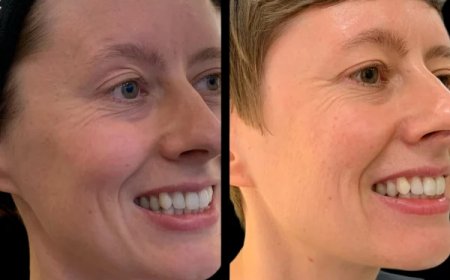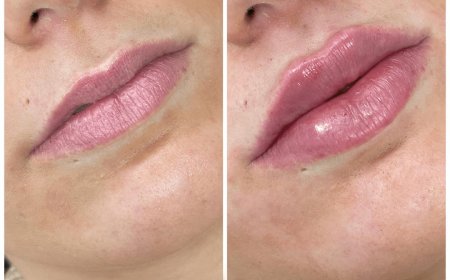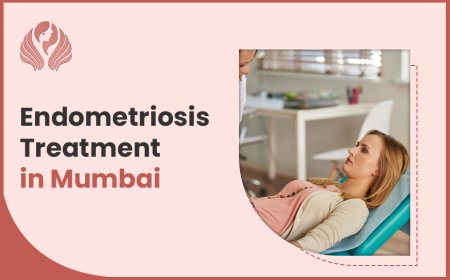Addiction Recovery Centers and Substance Abuse Treatment: A Path to Healing and Hope

Substance abuse is a growing concern across the world, affecting millions of individuals and families. Whether it's alcohol, prescription drugs, or illicit substances, addiction can have a devastating impact on every aspect of a persons lifephysically, emotionally, socially, and financially. Thankfully, addiction recovery centers and substance abuse treatment programs offer a structured and supportive environment where healing can begin.
In this article, well explore what addiction recovery centers are, the types of substance abuse treatment available, and how these services can lead individuals down the path of long-term recovery.
Understanding Addiction and Its Impact
Addiction is a chronic disease characterized by compulsive drug-seeking behavior and use, despite harmful consequences. It affects brain function and behavior and often requires professional treatment to overcome.
The consequences of untreated addiction are severe. Individuals may face deteriorating health, broken relationships, legal issues, job loss, and even death. Families and communities also suffer, making it vital to address substance abuse with compassion and evidence-based solutions.
What Are Addiction Recovery Centers?
Addiction recovery centers are specialized facilities designed to help individuals overcome substance dependency. These centers provide a safe, structured, and supportive environment where individuals can focus on recovery away from the triggers and temptations of everyday life.
Recovery centers may vary in size, approach, and services, but they all share a common goal: helping clients regain control of their lives and maintain sobriety.
Common Services Offered at Recovery Centers:
- Medical detoxification
- Inpatient or residential care
- Outpatient treatment programs
- Behavioral therapy and counseling
- Support groups and peer counseling
- Family therapy and education
- Aftercare planning and relapse prevention
Substance Abuse Treatment: Tailored for Every Individual
There is no one-size-fits-all approach to treating addiction. Substance abuse treatment is most effective when it is customized to meet the unique needs of each individual. This includes consideration of the substance being used, the severity of the addiction, the presence of co-occurring disorders (like depression or anxiety), and the individuals social support system.
Here are some of the most common types of substance abuse treatment:
1. Detoxification (Detox)
The first step for many individuals entering recovery is detoxification. This medically supervised process helps clear the body of drugs or alcohol while managing withdrawal symptoms. Detox alone is not treatment, but its a crucial step in preparing the body and mind for the next phase of recovery.
2. Inpatient Rehabilitation
Inpatient or residential treatment programs offer 24/7 care in a structured environment. These programs typically last between 30 to 90 days and are ideal for individuals with severe addictions or those who need to be removed from high-risk environments.
Benefits of inpatient rehab include:
- Comprehensive therapy (individual, group, family)
- Daily structure and routines
- Peer support from others in recovery
- Reduced access to substances and triggers
3. Outpatient Treatment
Outpatient programs allow individuals to receive treatment while continuing to live at home. This flexibility makes it possible to maintain employment, attend school, or care for family while still receiving therapy and support.
Types of outpatient programs include:
- Partial hospitalization programs (PHPs): Intensive care several hours per day
- Intensive outpatient programs (IOPs): Treatment sessions a few times a week
- Standard outpatient care: Weekly therapy or group counseling
Outpatient treatment is often used as a step-down from inpatient care or as an option for those with less severe addictions.
4. Behavioral Therapies
Behavioral therapies are at the core of most substance abuse treatment programs. These therapies help individuals understand their addiction, develop coping strategies, and change harmful behaviors.
Some common behavioral therapies include:
- Cognitive-behavioral therapy (CBT): Helps identify and change negative thinking patterns
- Dialectical behavior therapy (DBT): Focuses on emotional regulation and interpersonal effectiveness
- Motivational interviewing: Enhances motivation and commitment to recovery
- Contingency management: Offers rewards for maintaining sobriety
5. Medication-Assisted Treatment (MAT)
For certain addictions, such as opioid or alcohol use disorder, medications can be used as part of the treatment plan. Medication-Assisted Treatment combines FDA-approved medications with counseling and behavioral therapies to reduce cravings and prevent relapse.
Common medications include:
- Methadone
- Buprenorphine (Suboxone)
- Naltrexone
- Disulfiram (for alcohol)
MAT can significantly improve treatment outcomes and increase long-term recovery success.
6. Support Groups and Peer Recovery
Participation in support groups such as Alcoholics Anonymous (AA), Narcotics Anonymous (NA), or SMART Recovery provides ongoing peer support. These groups encourage accountability, shared experiences, and emotional connectionkey elements for long-term sobriety.
Choosing the Right Addiction Recovery Center
When selecting an addiction recovery center, its important to consider several factors:
- Accreditation and licensing: Ensure the facility meets professional standards.
- Treatment approach: Look for evidence-based practices and personalized care plans.
- Qualified staff: Experienced medical and mental health professionals should be available.
- Amenities and setting: Consider whether a peaceful environment would aid recovery.
- Aftercare support: Continued support after treatment is crucial for relapse prevention.
Its also helpful to speak with a counselor or admissions representative to understand what the program entails and whether its a good fit.
The Importance of Aftercare and Relapse Prevention
Recovery doesnt end when a program does. Ongoing support and aftercare services are essential for maintaining sobriety. This may include:
- Continued therapy or counseling
- Sober living homes
- Job training or education programs
- Family counseling
- Alumni support networks
Relapse is a common part of the recovery journey, but with strong aftercare and a solid support system, many individuals are able to maintain lasting recovery and rebuild their lives.
Conclusion: Hope and Healing Are Possible
Addiction may feel overwhelming, but recovery is always possible. With the right combination of care, compassion, and commitment, individuals can overcome substance abuse and create a healthier, more fulfilling future.
Addiction recovery centers and substance abuse treatment programs offer the guidance, tools, and community needed to break free from addiction. Whether you're seeking help for yourself or a loved one, taking the first step toward recovery is the most importantand most courageousdecision you can make.
If you or someone you know is struggling with substance abuse, dont wait. Reach out to a qualified recovery center today and begin the journey toward healing and hope.
























